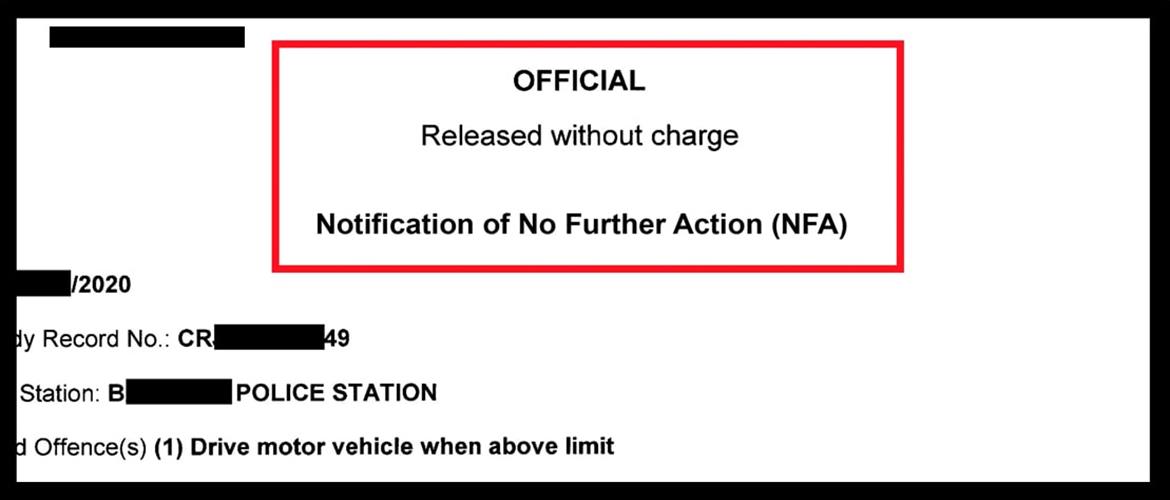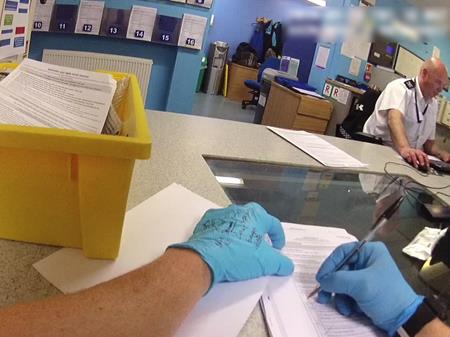How we persuade the police not to charge you.

2025 Case Study: Don't just wait to be charged.
At M.A.J. Law, we specialise in defending drink and drug driving cases. The earlier we can begin preparing your case, the better your chances of a successful outcome. In fact, early intervention may even allow us to prevent the police from charging you altogether—just as we managed in the case outlined below.
Jack’s Case: A Closer Look
Jack called our office at 4 p.m. on a Wednesday afternoon. He had been referred to us by a friend whose drink driving case we successfully defended just a few months prior. Jack was understandably worried. He explained that he had been pulled over by the police for a ‘routine document check.’ During the interaction, the police claimed to smell cannabis and conducted a roadside swab test, which Jack failed.
Jack was shocked. “How could I have failed?” he asked. He couldn’t understand how cannabis could still be detected in his system from the weekend. I explained to Jack that cannabis can remain detectable in the body for days or even weeks after use, depending on various factors. This is due to its elimination rate, which is measured in terms of 'half-lives.' The half-life of a substance refers to the time it takes for the concentration of that substance in the body to reduce by half.
For cannabis, the half-life of THC—the primary psychoactive component—varies significantly. For infrequent users, it can be as short as 1.3 days, but for regular users, it can extend to 5–13 days. On average, THC is eliminated from the bloodstream within 24–48 hours, though it can remain detectable for much longer in urine and hair samples.
Jack was taken into police custody, where a blood sample was collected. I asked Jack to provide details about his time in custody, particularly regarding the blood testing process. I explained the procedure, including the importance of the MGDDB (Manual Guidance for Drug Driving Pro-forma B) document, which comprises around 20 questions. Jack was clear that the MGDDB process had not been conducted properly in his case. (You can read more about incorrect MGDDB procedures here).
Jack was understandably anxious about the potential consequences. Losing his licence would likely result in losing his job at BT, where he relied on his vehicle for work. Drug driving convictions carry a mandatory minimum 12-month driving disqualification, with no possibility of reducing the ban.
Drug driving carries a mandatory minimum 12 month disqualification. The ban cannot be reduced if you're convicted.
Before his release from custody, the police informed Jack that his blood test results would be available within 4–6 weeks. However, I explained that this timeline is often inaccurate due to significant delays caused by a backlog in testing, worsened by the Randox Testing Scandal. In reality, results often take closer to four months.
Jack was released under investigation and taken back to his vehicle. I outlined the four primary reasons his blood test might return positive for THC:
- Admitted Cannabis Use: Jack acknowledged using cannabis.
- Failed Roadside Swab Test: This indicated the presence of THC in his system.
- Low Legal Limit: The legal threshold for THC is just 2µg, and laboratories use highly sensitive analysis methods.
- Target-Driven Culture: Police often seek convictions to meet internal performance targets.
Jack’s Options


I explained to Jack that he had two choices:
- Do nothing and wait for the results.
- Start challenging the case immediately.
It’s human nature to sit tight and hope for the best. Many people assume that if they ignore the situation, it might go away. Unfortunately, this approach can be dangerous. Inaction almost always leads to criminal charges. Once charges are filed, you’re left scrambling to prepare a defence, often just days before a court hearing—a stressful and chaotic situation.
Did you know we will discuss your case free of charge? Simply fill out the contact form and a solicitor will call you.
The Importance of Proactive Action
Being proactive is far better than being reactive. A proactive approach involves taking steps to challenge the case before charges are even filed. The Criminal Justice System relies heavily on defendants pleading guilty to function efficiently. Courts are chronically underfunded and overworked, operating at the brink of collapse. If more defendants challenged their cases, the system would grind to a halt.
Many people charged with drug driving assume they must plead guilty if their test results exceed the legal limit. However, this assumption is not always correct. Police often rely on defendants pleading guilty without presenting or proving their case in court.
Jack’s situation was no exception. The police processed him quickly, cutting corners during the custody procedure, likely assuming he would simply accept his fate. In our experience, this happens for several reasons:
- Time Sensitivity: The faster the process, the higher the THC concentration in test results.
- Resource Strain: Police departments are often stretched to their limits.
- Lack of Training: Officers frequently fail to grasp the importance of proper procedures.
The Game Plan
Jack chose to take a proactive approach. We developed a clear strategy to challenge the case. I began by writing to the police, requesting the preservation of any CCTV footage showing the evidential procedures (to ensure it wasn’t overwritten). I also requested custody records, risk assessments, and detention logs.
Next, we carefully examined the paperwork for discrepancies or errors. Any irregularities would be highlighted to the police. I also raised preliminary concerns about the adequacy of the evidence against Jack, focusing on procedural errors, breaches of codes of practice, and potential human rights violations.
The goal of this detailed approach was to create practical challenges for the police. They would either need to dedicate significant resources to address our concerns or risk serious criticism later.
The Outcome
By asking tough questions and applying pressure, we forced the police to reconsider pursuing the case. Within two weeks, we received correspondence from the police confirming the following:
- No Further Action (NFA)
- Police Notice: The prosecution stated that the evidential stage of the Full Code Test could not be met.
According to the police, the case was dropped because:
- The evidence did not meet the Full Code Test (i.e., there was no reasonable prospect of conviction).
- It was not deemed in the public interest to prosecute.
Jack’s licence—and his job—were saved.
Takeaway
Jack’s case highlights the importance of early intervention. Don’t wait to be prosecuted. Be proactive, even if it feels easier to bury your head in the sand. If you instruct us, we’ll handle all correspondence on your behalf, so you don’t have to worry.
If you’d like to discuss your options, get in touch. You can speak to a specialist solicitor within seconds. All initial advice is completely free of charge.






